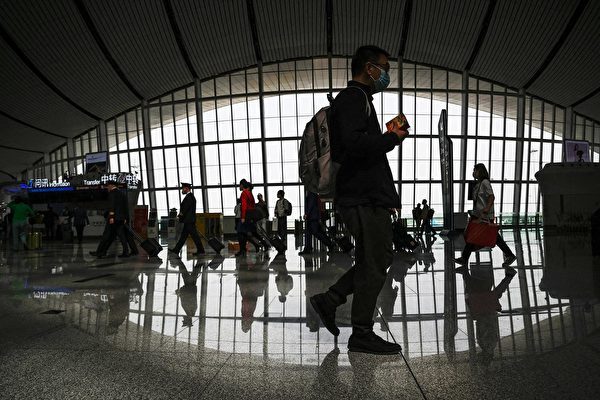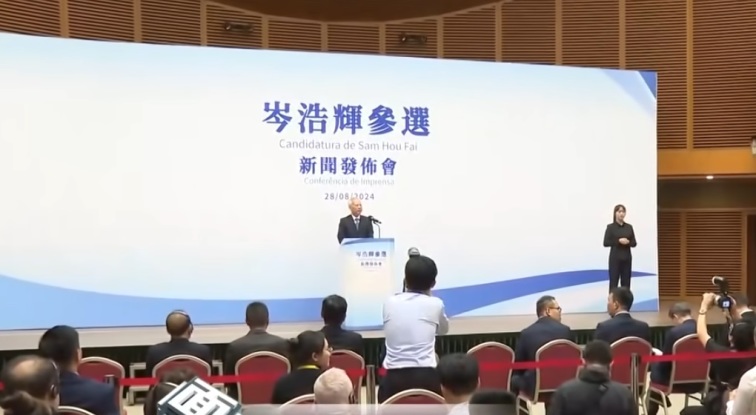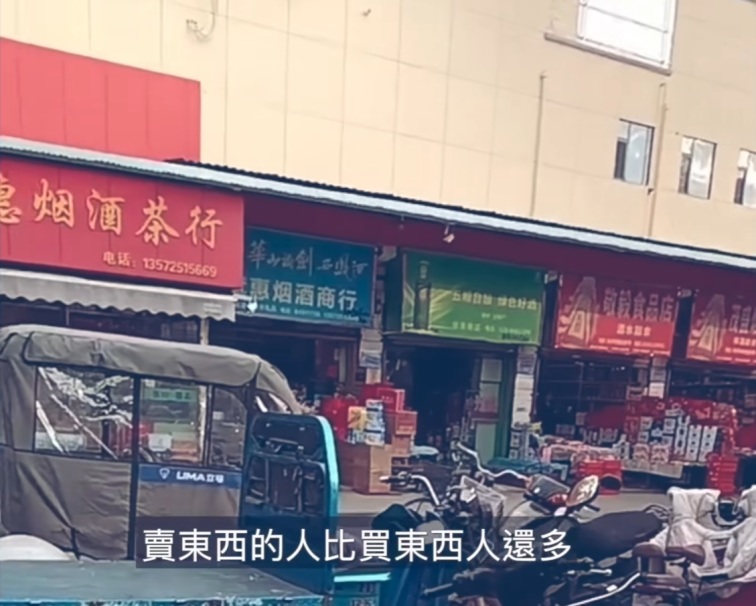Passengers at Beijing Daxing International Airport on April 28, 2023. (Jade Gao/AFP via Getty Images)
People News - The Chinese Communist Party (CCP) recently announced a comprehensive relaxation of its visa-free transit policy, expanding eligible regions and increasing flexibility. Experts suggest this move aims to attract more foreign tourists and business travelers to stimulate domestic demand and promote economic growth. However, concerns over domestic security risks cast doubt on the policy’s potential economic benefits.
Promoting Transit Tourism to Boost Domestic Demand
According to Voice of America, on December 17, China’s National Immigration Administration announced that the visa-free transit period for foreigners traveling through China would be extended from the previous 72 or 144 hours to 240 hours. Additionally, 21 new entry and exit points were added for visa-free transit, with a broader range of activities permitted in these regions.
To encourage inbound tourism and business activities, China has significantly expanded unilateral visa-free entry policies over the past year. Starting November 30, visa-free stays were uniformly extended to 30 days. Correspondingly, the previous three-day or six-day transit visa-free policies have been extended to 10 days.
The pilot regions for these relaxed measures initially focus on eastern provinces with higher openness, gradually expanding to central and western areas with strong inbound tourism demand and more robust management infrastructure. However, these policies resemble marketing promotions more than genuine reform.
Beneficiaries and Underlying Contradictions
Ding Qiang, a Chinese political commentator based in New Zealand, believes the new policy primarily benefits foreign nationals of Chinese descent who frequently travel to China due to significant interests within the country. However, he questions whether this policy will significantly boost China’s economy. “The relaxed policy makes it easier for them to return home, but it’s unlikely to lead to substantial or timely economic improvement,” Ding told Voice of America.
Ding also noted that China hopes to use these policies to present an image of openness and “tell China’s story well” to revitalize its economy. However, given current domestic security issues and rising nationalist sentiments, many foreigners may remain unconvinced.
Regional Characteristics and Security Concerns
China’s National Immigration Administration stated it would continue to advance institutional openness in immigration management, improve convenience policies for foreigners entering and leaving China, and enhance the overall experience for foreigners studying, working, and living in the country. The agency welcomed more international friends to visit China and experience the “beauty of the new era.”
However, Ding criticized the CCP’s recent promotion of extreme nationalism, which has eroded regional characteristics and turned some areas into “security risk zones.” He argued that what the CCP calls the “beauty of the new era” is likely unrelatable to foreigners, especially when personal safety becomes a concern.
Hung Yao-nan, a professor at Tamkang University, also highlighted that foreign tourists’ hesitations primarily stem from political and security concerns. He stated, “Despite the relaxed policies, some foreign tourists remain apprehensive about China’s political environment and safety issues, particularly after the passage of the National Security Law and the Anti-Espionage Law, which have significantly heightened concerns.”
“The real question is, how useful is visa-free transit?” asked Wu Chien-chung, a professor at Taiwan’s Soochow University. “Being friendlier to international visitors, aligning with universal values, and avoiding arbitrary disappearances might be far more effective.”
Hung Yao-nan concluded that the success of the visa-free policy depends on whether China can alleviate international concerns about its internal security. He emphasized that only by establishing a safe and inclusive societal environment can the policy’s economic benefits truly materialize.











News magazine bootstrap themes!
I like this themes, fast loading and look profesional
Thank you Carlos!
You're welcome!
Please support me with give positive rating!
Yes Sure!